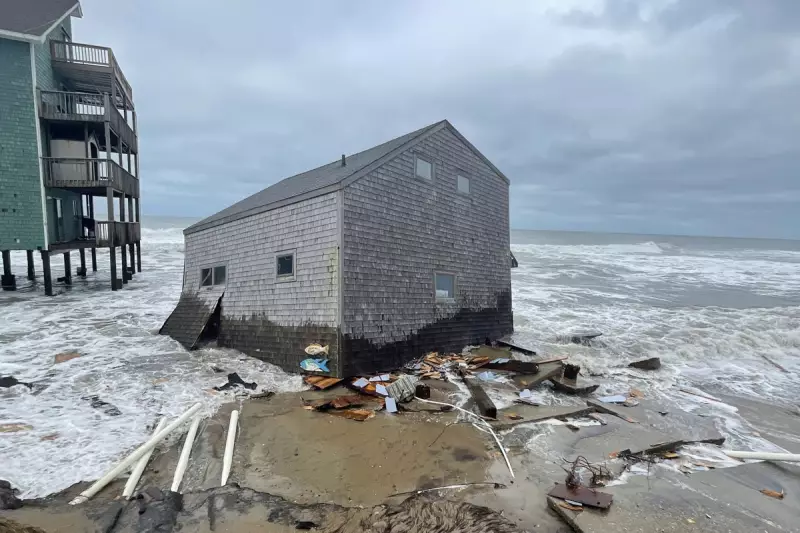
In a revelation that could reshape our understanding of Earth's freshwater resources, scientists have uncovered evidence of vast, hidden reservoirs of freshwater nestled deep beneath the Atlantic Ocean floor. This groundbreaking discovery, made off the northeastern coast of the United States, suggests a previously unimaginable solution to growing global water shortages.
The research, led by scientists from Columbia University, indicates that these submarine aquifers contain a staggering volume of relatively fresh water trapped in porous rock. The findings point to a hidden system that is likely replicated in other coastal regions around the world.
A Hidden World Beneath the Waves
The discovery was not made through traditional drilling but by employing innovative electromagnetic wave technology. A receiver towed behind a research vessel measured how the electromagnetic fields reacted to substances below the seafloor, effortlessly distinguishing between resistant freshwater and conductive saltwater.
This method revealed that these freshwater reserves aren't isolated pockets but form a continuous aquifer system, stretching for at least 350 kilometres along the US Atlantic coast and containing an estimated 2,800 cubic kilometres of water.
How Did It Get There?
Scientists propose two primary theories for the origin of this undersea freshwater. The most compelling explanation points to a relic from the last Ice Age. Over 20,000 years ago, much of the world's water was locked in glaciers, and sea levels were significantly lower, exposing what is now the continental shelf.
"When the ice started melting and sea levels rose, it trapped this huge freshwater sediment below the ocean," explained the lead researcher. This ancient water was then likely topped up over millennia by subterranean runoff from the land, a process that may continue slowly today.
Implications for a Thirsty Planet
This discovery holds monumental significance. As climate change and population growth exacerbate water scarcity globally, these offshore aquifers represent a potential new source of freshwater. While desalination remains an expensive and energy-intensive process, tapping into these reserves could be a more viable alternative for coastal communities.
However, researchers urge caution. "This is a promising discovery, but we must understand the resource fully before extraction can be considered," the study notes. Drilling would need to be done carefully to avoid seawater contamination of the aquifers.
The search is now on to locate similar submerged freshwater systems along coastlines worldwide, potentially unlocking a new chapter in our ability to manage one of humanity's most vital resources.





